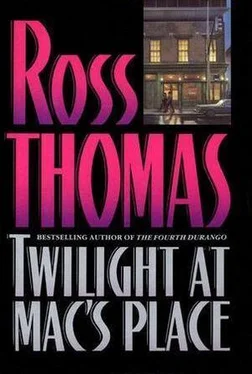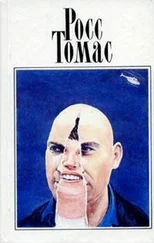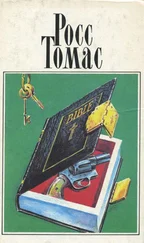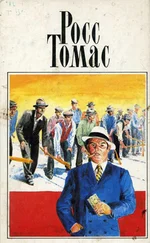After two minutes of silence, Padillo said, “That was a nice performance you gave.”
Haynes smiled at the praise. “You mean the way I let my paranoia peep shyly forth?”
Padillo nodded. “You must’ve drawn on your time with the L.A. cops. I say that because half the cops I ever met were paranoid.”
“Half the cops,” Haynes said, “and all the actors.”
Thirty seconds later Tinker Burns came out of one of the two elevators they could see from the car and headed for the pay phones. Burns had dressed quickly and was wearing only a shirt, pants, shoes, but no socks. As he neared the pay phones, he hesitated, looked around, made a quick tour of the virtually empty lobby, then went back to the phones and dropped coins into one of them.
With Padillo’s powerful binoculars now up to his eyes and the long-memorized three-across-and-four-down Touch Tone phone pattern firmly in mind, Haynes read off the seven numbers that Burns tapped as Padillo jotted them down on the back of an envelope.
“Four. Six. Five. Nine. One. Nine. One.”
“You’re sure?” Padillo said.
“Christ, no.”
“Good. I’d be a little edgy if you were.”
They watched Burns talk and listen for two minutes and thirteen seconds by Padillo’s watch. Burns then hung up and reentered the same, still waiting elevator. As its doors closed, Padillo said, “Any ideas?”
“About how we find out who belongs to 465-9191?”
Padillo nodded, started the engine and pulled away from the curb.
“Tonight?” Haynes asked.
“Why not?”
“I’m open to suggestions.”
Padillo glanced at him. “Are you much of a mimic?”
“Try me.”
“Do Tinker Burns.”
Haynes closed his eyes, breathed deeply two times, opened his eyes, deepened his voice, gave it a rough edge and bellowed, “Okay! That’s it! Now get the fuck outta here before I call security!”
Padillo smiled. “Perfect.”
They made the call from Padillo’s Foggy Bottom house. Haynes made it from the wall phone in the kitchen with Padillo on the living room extension.
After Haynes tapped out the 465-9191 number, it rang four and a half times before it was answered by a man’s sleepy mumbled hello.
“Tinker Burns again,” Haynes said. “There’s one more thing I forgot to tell you.”
“Mr. Burns, this is twice tonight that you’ve robbed me of sleep,” said the voice that once again reminded Haynes of soothing syrup. “I assure you we can discuss it, whatever it is, when we meet tomorrow morning. And now, sir, good night.”
The connection was broken. Haynes put the wall phone back on its hook and went into the living room. Padillo turned from the extension and said, “Well?”
“One, he’s a lawyer. Two, he’s an ex-U.S. senator. Three, he’s the guy who’s been talking to Howard Mott about buying all rights to the memoirs for some anonymous client. And four, he’s obviously from way down south.”
“Near Mobile,” Padillo said.
“Is that a guess or do you know him?”
“We’ve met,” Padillo said.
The one-term senator from Alabama practiced law in a three-story building that sat on a small triangle of land where Connecticut Avenue met Nineteenth Street just north of Dupont Circle.
The building had once offered fine apartments, including one that a former Speaker of the House of Representatives, now dead, had lived in for years. It was still an article of faith in Washington that its weird taxicab zones had been redrawn to make sure the Speaker would pay the absolute minimum fare for his rides to and from the Capitol.
Tinker Burns paid off his own taxi, got out and examined the yellow brick building that time and smog were turning light tan. He hoped the senator hadn’t chosen the building for its quaintness. Burns despised and mistrusted anything that hinted of quaint.
The senator had made his law office look as much like his Senate office as possible. There were the same dark blue leather chairs and couches, the same massive desk and, on one wall, the same rather good watercolors of Mobile Bay. The other walls were covered by either book-shelves or the eighty-seven black-and-white photographs of the senator and eight-seven of his oldest and dearest friends, past and present. Some of the past friends had died and others had quickly — too quickly, some said — drifted away after the senator lost his bid for reelection in 1986.
But the photographs remained on display, offering informal portraits of the senator with three living former U.S. Presidents, one prince, six premiers, one chancellor, two prime ministers, twenty-one U.S. senators, thirteen U.S. representatives, nine state governors, three secretaries of state, five directors of Central Intelligence, one ex-President-for-Life and a five-year-old blue tick hound who was now curled up fast asleep on one of the leather couches.
The senator was on the telephone when his secretary ushered Tinker Burns into the paneled office. Burns was greeted with a warm smile and a beckoning hand that waved him silently into the most comfortable leather armchair.
Once assured that Burns was safely seated, the senator went back to his listening. He did it with his eyes closed. When open, the eyes were a remarkable blue that reminded one former Senate colleague, no admirer, of twin neon periods.
The rest of the face was lean, maybe even skinny, with scooped-out cheeks, sharp nose, thin gray lips and a chin that came to a point. The face was topped by lank gray hair that was inexpertly cut by his wife every three weeks. The kitchen haircut and the shabby suits he wore helped foster the senator’s chosen image — that of a sly rustic. At twenty-three and just out of law school, he had nicknamed himself Rube. Now fifty-three, he still liked to be called that by close friends.
The senator stopped listening, opened his eyes and spoke into the phone. “I respect that, Frank, but we’ve still got a long way to go before we get to the well. Lemme call you back later today... Yes, sir, I’ll surely do that... G’bye.”
The senator put the phone back into its nook on the console and rose, right hand extended. “Mr. Burns. Sorry to be so rude.”
Burns half rose, gave the offered hand a quick shake and sat back down, confining his greeting to, “How you doing?”
“Not too sure,” the senator said, resuming his seat. “Not too sure at all. I was kind of hoping you could let me know.”
“I’m going to tell you what I think, Senator, and then I’m going to tell you what I know.”
“Logic would dictate the other way around but you just go right ahead.”
“I think Steady and Isabelle never wrote any memoirs, never intended to write any and that the whole thing’s been a shuck from start to finish.”
The senator stuck out his lower lip and nodded judiciously. “Early this morning — very early, I might add — you called to tell me you’d met with Letitia Melon, the former Mrs. Steadfast Haynes, and that she’d given you something ‘important,’ I believe you said.”
“Yeah. She gave me a copy of Steady’s manuscript that turned out to be three hundred and eighty-something mostly blank pages.”
“And from this you reason there is not now, nor has there ever been, a true manuscript?”
“I knew Steady a long, long time and I knew Isabelle all her life. What I’m pretty sure they did was hole up at Steady’s farm and map the whole thing out.”
“The shuck — not the manuscript?”
“Yeah. Then right before the inauguration, they check into the Hay-Adams and start spreading the word around town that Steady’s just finished his red-hot memoirs and needs a permanent seat at the North trial because it’s gonna provide him with the epilogue for his book. Now lemme ask you this: Was Steady really trying to end his book, or was he trying to scare the shit out of somebody?”
Читать дальше









